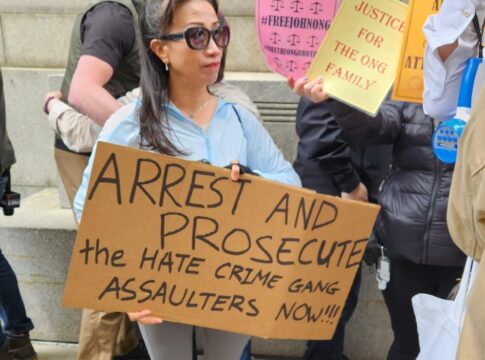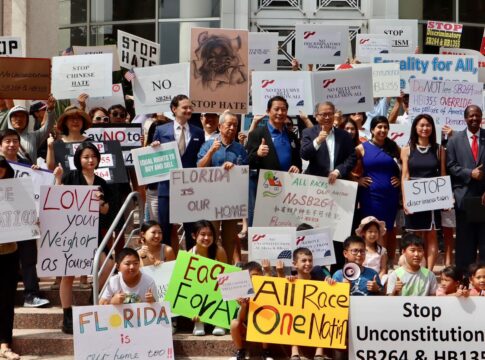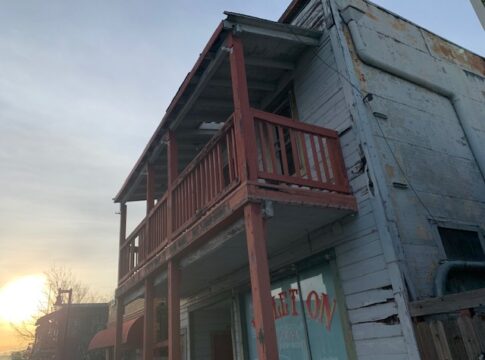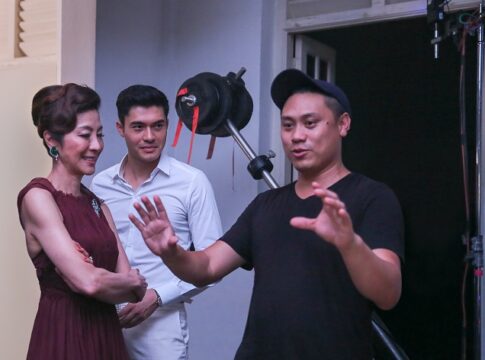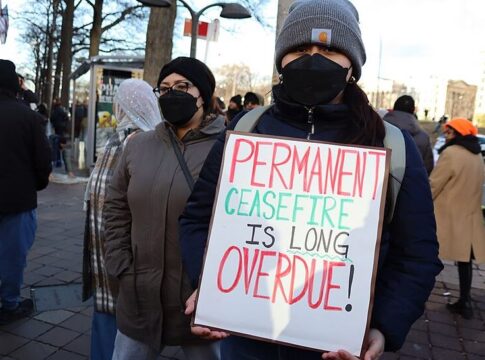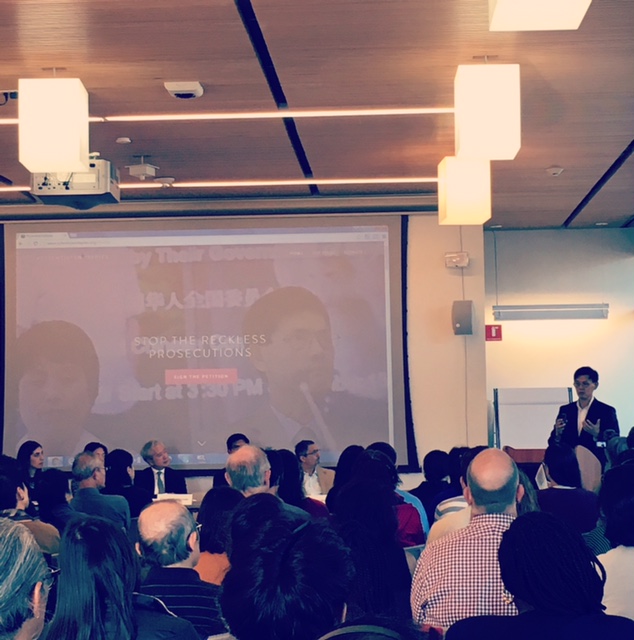
By Frances Fu
AsAmNews Intern
On Tuesday evening at the City College of San Francisco, Asian Americans Advancing Justice – Asian Law Caucus teamed up with various Asian American Pacific Islander (AAPI) and social justice groups to host a panel about the portrayal and treatment of Asian immigrants and citizens as national security threats throughout American history.
“From Xiaoxing Xi to Japanese American Internment Targeting Immigrant Communities as National Security Threats” brought together perspectives on the history of racial profiling committed against Asian Americans, including “wrongful espionage prosecutions of Chinese American scientists, profiling of Arab, Middle Eastern, Muslim, and South Asian communities post-9/11, and the internment of Japanese Americans during WWII.”
This historic panel began with a story from Professor Xiaoxing Xi, a Chinese American scientist who was arrested and charged by the FBI in May 2015 for stealing technology secrets for China.
At the time, he chaired the physics department at Temple University, and had been living in America as a naturalized citizen for 25 years. The night of his arrest, he was woken by loud, urgent knocks. Hurrying half-dressed to answer the door, he was greeted by a team of armed law enforcement officers.
LATEST STORIES
He was charged with four counts based on four emails sent to Chinese colleagues, all regarding public technology that was largely unrelated to his professional work at the time. Although he was communicating with Chinese colleagues, these communications were innocent – scholars are generally encouraged to engage with their peers around the world to promote the advancement of scientific knowledge.
When the reason for his arrest was disclosed to him, he was in complete and utter disbelief. “My first thought,” he says, “was that this must be a mistake.”
Eventually, the charges were dropped without explanation. However, the damage had been done.
“One day, I was the head of the physics department at Temple University. Overnight, I was painted as a Chinese spy. I faced 80 years in prison and a $1 million fine.” During his detainment, he was forbidden to communicate with his students and subjected to a humiliating strip search. His family, who had been present during the raid, became constantly worried about FBI surveillance in their own home after his arrest. 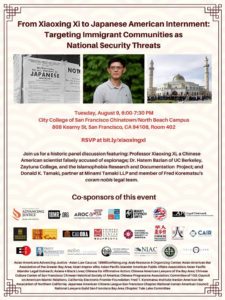
During that time period, there were many other federal cases pursued against Chinese American individuals that were also dropped later on without explanation, including the cases against hydrologist Sherry Chen from the National Weather Service, and biologists Guoqing Cao and Shuyu Li.
While it is important for the government to be committed to national security, Professor Xi argues that the unfounded prosecutions of innocent people should lead us to question whether these cases were truly pursued with “good intentions,” or if they were motivated by racial discrimination. He urges the Asian American community to speak up, arguing that if the government can infringe upon the rights of Chinese Americans, the civil rights of every American of any ethnicity are at risk.
Dr. Hatem Bazian, a self-described “de-colonial Islamic thinker,” Professor and co-founder of Zaytuna College, and Senior Lecturer at UC Berkeley was the next to speak, drawing attention to the ways in which non-Western people and cultures are portrayed in the United States.
He points out that while American media coverage of Muslims or Latin Americans tends to highlight terrorism or drug cartels, respectively, the stereotypical representation of China is one of “spying, stealing American technology, and undermining the economy.” In all of these narratives, the U.S. is absolved of blame, despite America’s history, funding for wars abroad, and capitalistic culture that often ultimately harms its own citizens’ economic livelihood.
Dr. Bazian advocates for a broad civil rights coalition to defend human rights from government misuse of power. Today, the need for united advocacy remains relevant as the threat of “equal opportunity offender” Donald Trump taking the presidency becomes more plausible each day, he said.
At this point, attorney Donald K. Tamaki raises the question that is on the mind of many audience members – although these gross violations are an important reminder of history, could an instance like this happen again? Tamaki said yes.
During World War II, the secret service and the FBI arrested between 110,000 to 120,000 individuals of Japanese descent. 62% were American citizens. They were placed in internment camps along the West coast. At the time, “Japanese Americans were seen as unassimilated and unassimilable, and prone to disloyalty,” said Tamaki.
Tamaki tells the audience about the case of Fred Korematsu, a Japanese American citizen who was convicted for evading internment during the mass government arrests. This led to the landmark U.S. Supreme Court case, Korematsu v. United States, where the Court ruled 6-3 that the detainment of Japanese Americans without trial was constitutional because it was not motivated by racial discrimination, but “military necessity.”
In 1983, the case was overturned when Judge Marilyn Hall Patel, the United States District Court for the Northern District of California, ruled that the government had knowingly submitted false information that profoundly affected the outcome of the case, a practice that remains common today. In 2011, the Department of Justice filed an official notice conceding that the Solicitor General’s defense contained errors; however, the Korematsu decision has still not been explicitly overturned. Tamaki explains that this historical precedent should stand as caution for us today.
The event closed with two calls to action.
Joyce Xi, daughter of Professor Xi, explains how the community can help seek justice for the wrongful prosecution of her father. She is currently working with advocates and members of Congress to seek a formal apology and demand accountability from President Barack Obama and the Justice Department. Visit scientistsnotspies.org to learn how you can take action.
Asian Law Caucus lawyer Elicia Vafaie encourages everyone to know their rights in case someone from the FBI or the police wishes to discuss your academic work or connections to China. She highlighted the importance of exercising the right to remain silent, only speaking when you are sure you are telling the truth. Oftentimes, minor inaccuracies or an inability to recall the answers to questions can and will be interpreted as guilt. The ALC offers free and confidential consultations.
There will be similar events happening in Los Angeles on August 10, and at UC Irvine on August 11. More information for these events can be found here: http://bit.ly/2aeSqKV
AsAmNews is an all-volunteer effort of dedicated staff and interns. You can show your support by liking our Facebook page at www.facebook.com/asamnews, following us on Twitter, sharing our stories, interning or joining our staff.


